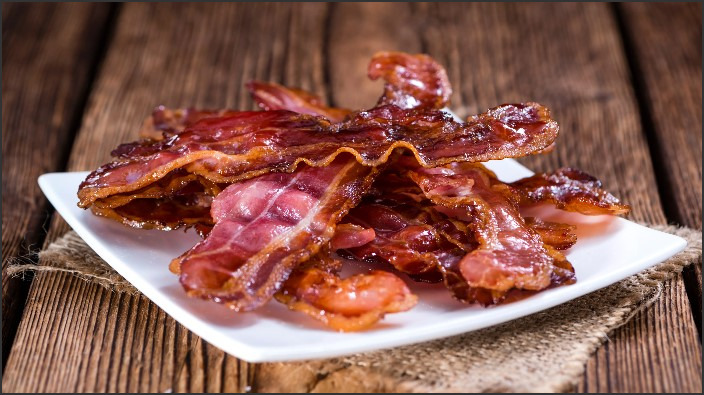Bacon Carcinogen: Understanding the Relationship Between Bacon and Cancer

Bacon Carcinogen: Understanding the Relationship Between Bacon and Cancer is an in-depth exploration of the potential health risks associated with the consumption of bacon, a popular food item worldwide. This topic has gained significant attention following the World Health Organization’s classification of processed meats, including bacon, as a Group 1 carcinogen. The study delves into the scientific evidence linking bacon consumption to an increased risk of developing cancer, particularly colorectal cancer. It also examines the compounds in bacon that contribute to this risk, such as nitrates, nitrites, and heterocyclic amines. The aim is to provide a comprehensive understanding of the potential health implications of bacon consumption, promoting informed dietary choices.
Unraveling the Bacon Carcinogen: The Link Between Bacon and Cancer
Bacon, a beloved breakfast staple for many, has been the subject of numerous health debates over the years. The most significant of these discussions revolves around the potential link between bacon and cancer. This connection, often referred to as the bacon carcinogen, has been the focus of extensive research and has led to a heightened awareness of the potential risks associated with consuming processed meats.
The term “bacon carcinogen” refers to the presence of certain chemicals in bacon that have been classified as potential carcinogens, or cancer-causing agents, by the World Health Organization (WHO). The primary culprits are nitrates and nitrites, which are used as preservatives in processed meats like bacon. During the cooking process, these chemicals can form nitrosamines, compounds that have been linked to cancer in numerous studies.
The International Agency for Research on Cancer (IARC), a part of the WHO, has classified processed meats, including bacon, as Group 1 carcinogens. This classification places them in the same category as tobacco and asbestos, known carcinogens. However, it’s important to note that this doesn’t mean that bacon is as dangerous as smoking or asbestos exposure. The classification is based on the strength of the scientific evidence linking these substances to cancer, not the level of risk.
The risk associated with bacon and other processed meats is relative and depends on the amount consumed. According to the IARC, consuming 50 grams of processed meat daily, which is equivalent to about four strips of bacon, increases the risk of colorectal cancer by 18%. While this is a significant increase, the overall risk remains relatively low. For instance, in the UK, the lifetime risk of developing colorectal cancer is about 5%. An 18% increase would raise this risk to just under 6%.
Despite the potential risks, it’s important to remember that diet is just one factor in cancer development. Other lifestyle factors, such as smoking, alcohol consumption, lack of physical activity, and obesity, play a significant role. Moreover, the type of meat and the method of cooking can also influence the risk. For example, grilling or barbecuing meat at high temperatures can lead to the formation of additional carcinogenic compounds.
While the link between bacon and cancer is concerning, it doesn’t necessarily mean that you need to eliminate bacon from your diet entirely. Moderation is key. The occasional bacon sandwich or Sunday breakfast isn’t likely to significantly increase your cancer risk. However, regularly consuming large amounts of bacon and other processed meats could potentially raise your risk.
In conclusion, the relationship between bacon and cancer is complex and influenced by various factors. The presence of potential carcinogens in bacon and other processed meats is a valid concern, but the overall risk remains relatively low, particularly when consumed in moderation. As with many aspects of diet and health, balance is crucial. Incorporating a variety of foods into your diet, including plenty of fruits and vegetables, and limiting your intake of processed meats can contribute to a healthier lifestyle and potentially reduce your cancer risk.In conclusion, numerous studies have indicated a relationship between the consumption of processed meats, including bacon, and an increased risk of developing certain types of cancer, particularly colorectal cancer. This is largely due to the presence of carcinogenic substances such as nitrates and nitrites used in the preservation process. However, the risk is associated with high consumption levels. Moderate consumption of bacon and other processed meats, as part of a balanced diet, does not pose a significant health risk.